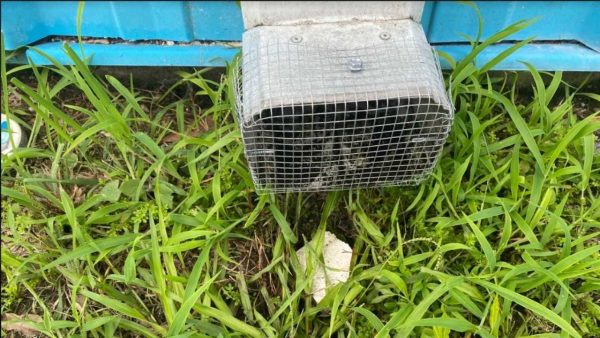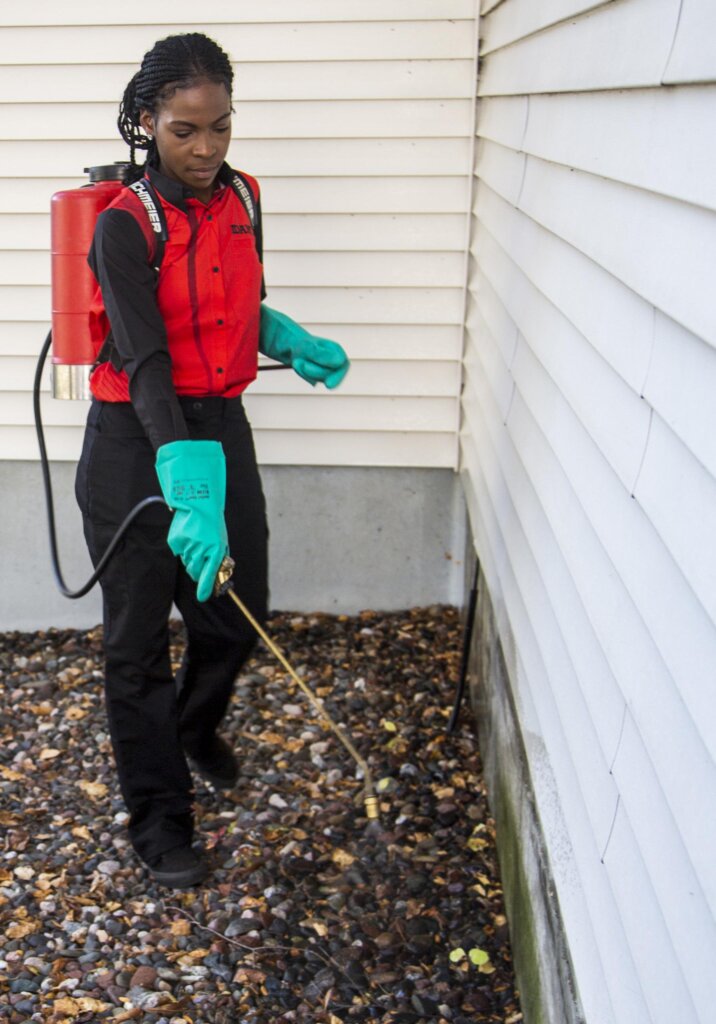Wildlife Removal Services in Port Charlotte for Efficient and Safe Solutions
Learn More About the most recent Breakthroughs in Insect Control and How to Implement Reliable Treatment Solutions
In the last few years, the area of parasite control has observed substantial developments, driven by the need for sustainable and reliable treatment solutions. Innovative approaches such as Integrated Parasite Administration (IPM) incorporate environmentally friendly techniques with advanced modern technology, enhancing both efficacy and ecological responsibility. Moreover, the integration of wise modern technologies and do it yourself approaches has equipped people to deal with parasite problems better. As we discover these developments, it comes to be necessary to recognize exactly how ideal to apply these techniques in different setups to achieve optimal outcomes. The implications for bug monitoring practices might be transformative.
Eco-Friendly Pest Control Options
In the last few years, the demand for green pest control choices has surged as organizations and property owners alike look for sustainable alternatives to standard chemical therapies. This change is driven by expanding environmental understanding and a wish to reduce the health and wellness dangers connected with artificial chemicals.

Green parasite control approaches include a series of strategies that prioritize using all-natural substances and practices. Integrated Bug Management (IPM) is one such approach, combining organic, social, and mechanical strategies to take care of parasite populaces while lowering dependence on chemicals (Wildlife removal services). This all natural technique emphasizes prevention with environment control and the introduction of natural killers, thus cultivating a well balanced environment
One more prominent choice is making use of agricultural chemicals originated from plants, which tend to be much less unsafe to non-target organisms. Products like neem oil and diatomaceous planet have gotten traction for their performance in regulating pests while posturing minimal threats to human wellness and the atmosphere.
In addition, exclusion techniques, such as securing access factors and preserving sanitation, play a crucial role in eco-friendly pest administration. By adopting these lasting methods, people and companies can effectively handle bugs while promoting a much healthier world for future generations.
Smart Modern Technology in Insect Administration
Advancement is improving the landscape of bug management, with smart technology emerging as a critical force in boosting efficiency and performance - Wildlife removal services. The integration of Web of Things (IoT) devices, expert system (AI), and information analytics is transforming exactly how pest control professionals come close to invasions
Smart catches outfitted with sensors can discover pest task in real-time, sending out immediate notifies to drivers. This enables for prompt actions, lessening damage and lowering the need for considerable treatments. Furthermore, AI algorithms analyze historical data to anticipate insect actions, enabling aggressive treatments based upon ecological problems and problem patterns.
Drones and automated automobiles are also playing a significant function in bug management, supplying airborne assessments of big areas, identifying hotspots, and also dispersing targeted treatments. These innovations not just enhance procedures however also enhance safety and security by limiting human direct exposure to potentially damaging chemicals.
Furthermore, mobile applications empower consumers to check insect activity and gain access to specialist suggestions, fostering a collaborative approach to pest management. On the whole, the fostering of wise innovation is establishing a brand-new standard in pest control, stressing data-driven choices and lasting techniques that inevitably profit both experts and home owners alike.
Integrated Pest Administration Techniques
Integrated Bug Administration (IPM) uses an all natural approach to pest control, integrating different approaches to successfully manage insect populaces while decreasing risks to human health and the professional rodent control atmosphere. IPM focuses on understanding the pest life cycle, their all-natural adversaries, and the ecological community in which they thrive.
One of the fundamental elements of IPM is keeping track of pest populaces through normal inspections and information collection. This permits the recognition of parasite limits, establishing when intervention is required. Cultural techniques, such as plant cleanliness, turning, and habitat adjustment, are important in lowering pest frequency and advertising plant wellness.
Mechanical controls, consisting of traps and barriers, are likewise essential in IPM. These techniques can physically remove or hinder insects without using chemicals. When needed, the judicious application of chemical controls is employed, concentrating on targeted treatments that decrease ecological impact.
Education and learning and cooperation amongst stakeholders, consisting of farmers, bug control professionals, and the area, are crucial for the effective implementation of IPM techniques. By focusing on lasting practices, IPM not only addresses pest issues however also cultivates a much healthier environment.
Biological Control Techniques
Many biological control techniques are significantly recognized for their effectiveness in managing insect populations while promoting eco-friendly equilibrium. These methods harness natural predators, parasites, and microorganisms to reduce pest numbers without depending on synthetic chemicals. The intro of ladybugs can successfully regulate aphid populations, while nematodes target soil-dwelling insect larvae.
Furthermore, using microbial chemicals, such as Bacillus thuringiensis (Bt), gives an eco friendly option for handling caterpillar bugs. These items specifically target pest species, minimizing injury to helpful insects and pollinators. Additionally, conservation biological control highlights improving habitats for natural enemies, such as birds and valuable pests, therefore motivating their presence in farming systems.
Research remains to disclose innovative methods within this area, such as using pheromones to interfere with pest mating patterns or the growth of biocontrol agents through hereditary design. Implementing these methods can bring about lasting bug administration practices that mitigate the dependence on chemical treatments, inevitably fostering healthier communities. As understanding of these methods expands, they are coming to be important components of incorporated parasite administration (IPM) techniques, offering a balance in between reliable insect control and environmental stewardship.
Do It Yourself Insect Control Solutions
As house owners seek efficient methods to tackle insect problems, DIY bug control services have gotten appeal check for their availability and cost-effectiveness. These techniques equip individuals to resolve infestations utilizing easily offered products and strategies, typically without the demand for specialist treatment.

Additionally, keeping proper cleanliness and regular assessments can prevent bug entry and nesting (Wildlife Related Site removal services). Simple methods, such as securing splits, getting rid of food resources, and decluttering, can substantially diminish insect populaces. Traps, both homemade and commercially readily available, can likewise provide effective solutions for surveillance and controlling details pests like bugs or rodents

Verdict
The combination of eco-friendly pest control alternatives, clever technology, and innovative administration methods provides a detailed method to efficient pest administration. By welcoming Integrated Bug Administration (IPM) and utilizing biological control techniques, together with do it yourself services, responsible and sustainable insect control can be attained. These improvements not just improve the effectiveness of insect administration practices however additionally contribute to a healthier environment. Executing these techniques promotes a well balanced community while properly addressing pest populations.
Eco-friendly parasite control techniques include an array of strategies that prioritize the use of natural substances and techniques. Integrated Insect Monitoring (IPM) is one such strategy, integrating organic, cultural, and mechanical techniques to take care of insect populaces while reducing dependence on chemicals. As understanding of these techniques grows, they are becoming essential elements of integrated insect administration (IPM) strategies, offering a balance in between effective insect control and ecological stewardship.
The combination of green bug control options, clever modern technology, and cutting-edge monitoring methods offers a comprehensive strategy to reliable pest monitoring. By embracing Integrated Parasite Monitoring (IPM) and making use of organic control techniques, together with Do it yourself remedies, responsible and lasting parasite control can be achieved.